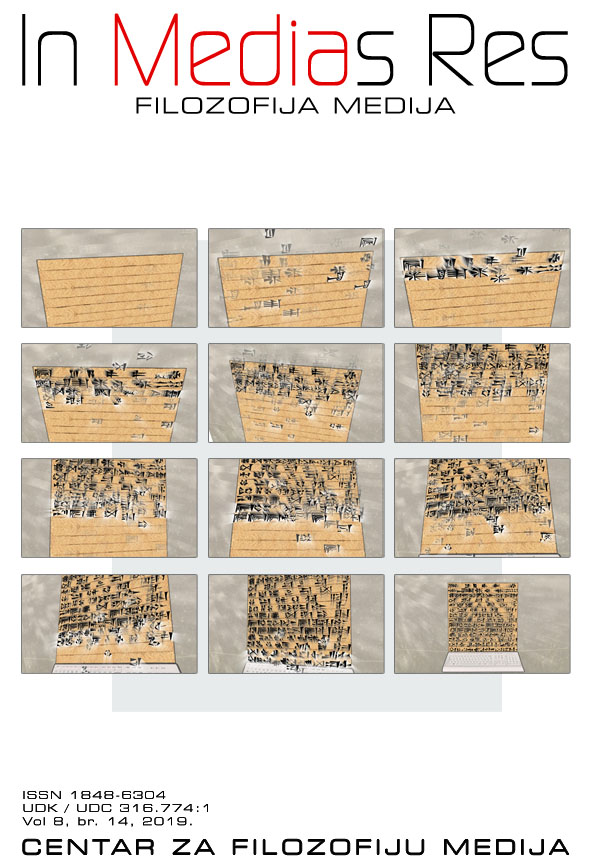Filozofija (medijske) distopije: društveni život između Sluškinjine priče i Crnog ogledala
Philosophy of (Media) Dystopia: the Social Life between The Handmaid’s Tale and Black Mirror
Author(s): Vuk VukovićSubject(s): Philosophy, Media studies, Social Philosophy, Communication studies, Philosophy of Science, Theory of Communication
Published by: Centar za filozofiju medija i mediološka istraživanja
Keywords: dystopia; media production; television programs; Black Mirror; Handmaid's Tale;
Summary/Abstract: Marshall McLuhan, within his technological-deterministic view of the world, affirmed the thesis that through various media we extended our senses by allowing technology to influence our psychic and social personality. If the media were truly human extensions “of any skin, hand or foot”, as this author apodictically claims, the question arises as to what is their amputation? The aim of this paper is to critically reflect social life and human, as an elementary anthropological category, in relation to the absolute presence / absence of modern media technologies. Are we speaking of anthology Black Mirror which directly deals with these topics and ideas, or Handmaid’s Tale, a series based on the novel Margaret Atwood? Whether we are talking about the technological simulation of consciousness and the psychological implications of the final phase of man’s extensions or dehumanization of (feminine) body and soul in a totalitarian-theocratic state, we are certainly relying on the media and technology, which is the starting point of thinking society, which in both cases can be characterized as dystopia.
Journal: In Medias Res
- Issue Year: 8/2019
- Issue No: 14
- Page Range: 2219-2229
- Page Count: 11
- Language: Croatian

